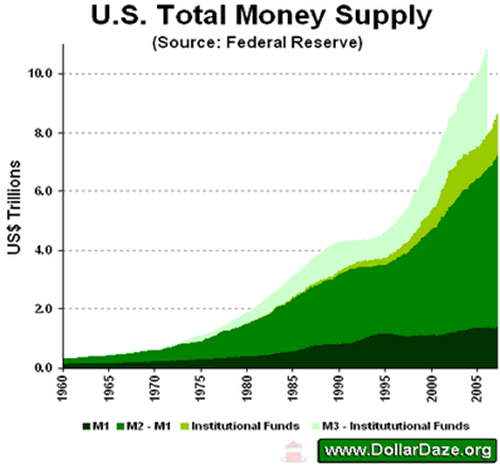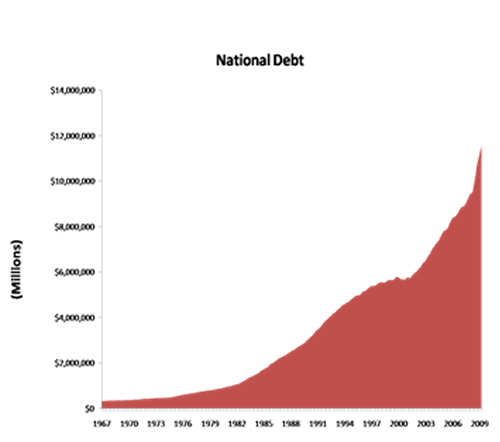Virtually all money today originates as debt, and private debts eventually get repaid, so somebody has to be in “permanent” debt to maintain a stable money supply. The federal debt serves this role. (Compare charts below.) The federal debt has been the basis of the U.S. money supply ever since the Civil War, when the National Banking Act authorized private banks to issue their own banknotes backed by government bonds deposited with the U.S. Treasury.


To meet the demands of an expanding economy, the money supply must be able to expand; and when the money supply is created as a debt (as it is today), that means the federal debt must be able to expand. This was confirmed by Marriner Eccles, Governor of the Federal Reserve Board, in hearings before the House Committee on Banking and Currency in 1941. Representative Wright Patman asked Eccles how the Federal Reserve got the money to buy government bonds.
“We created it,” Eccles replied.
“Out of what?”
“Out of the right to issue credit money.”
“And there is nothing behind it, is there, except our government’s credit?”
“That is what our money system is,” Eccles replied. “If there were no debts in our money system, there wouldn’t be any money.”
That explains why the federal debt never gets paid off but just continues to grow. The federal debt hasn’t been paid off since the presidency of Andrew Jackson nearly two centuries ago. On Jan. 8, 1835, six years into Jackson's presidency, the debt actually reached zero. According to the Bureau of Public Debt, this officially lasted one day. Not long after, America plunged into a depression.
Read more:
http://www.marketoracle.co.uk/Article24559.html

